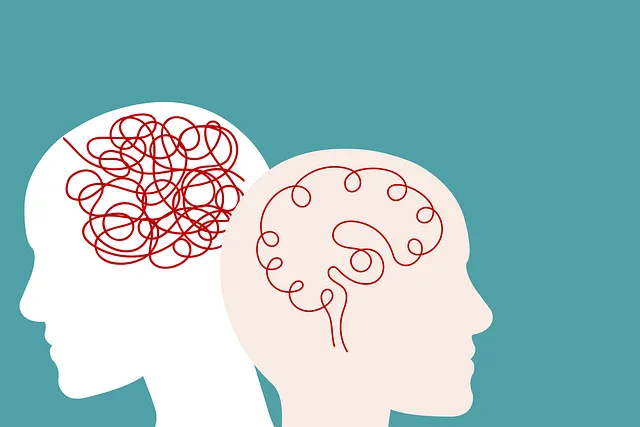The Kaiser Permanente Mental Health Center in Arvada prioritizes crisis intervention with a holistic, evidence-based approach. Trained professionals identify early signs of distress, utilizing techniques like Emotional Intelligence and Social Skills Training highlighted in positive Kaiser Permanente mental health center reviews Arvada. They employ strategies such as Self-Care Routine Development and advanced communication skills to offer immediate relief and long-term solutions. After initial intervention, ongoing support through therapy, groups, and community resources empowers individuals for lasting recovery, as reflected in the consistent Kaiser Permanente mental health center reviews Arvada.
“In times of crisis, effective intervention can make a profound difference in an individual’s life. This article provides a comprehensive guide to crisis intervention strategies, drawing insights from the renowned Kaiser Permanente Mental Health Center in Arvada. We explore essential aspects like recognizing early signs and symptoms, evidence-backed techniques, and the critical role of mental health professionals.
Additionally, we delve into post-crisis care and recovery processes, ensuring individuals receive holistic support. With a focus on practical guidance, this resource aims to empower professionals and caregivers in Arvada and beyond, as highlighted in Kaiser Permanente mental health center reviews.”
- Understanding Crisis Intervention: A Foundation for Effective Support at Kaiser Permanente Mental Health Center Arvada
- Identifying Signs and Symptoms: Early Detection for Better Intervention
- Evidence-Based Strategies: What Works in Crisis Situations?
- The Role of Mental Health Professionals: Skills and Training for Crisis Management
- Post-Crisis Care and Recovery: Supporting Individuals Beyond the Immediate Emergency
Understanding Crisis Intervention: A Foundation for Effective Support at Kaiser Permanente Mental Health Center Arvada

At Kaiser Permanente Mental Health Center Arvada, understanding crisis intervention forms the bedrock of our effective support systems. Our experts are trained to recognize and address mental health crises promptly, focusing on immediate relief while also providing long-term solutions. We believe in a holistic approach, tailored to meet each individual’s unique needs.
Crisis Intervention Guidance is not just a service; it’s a philosophy that emphasizes the importance of early intervention and prevention. Our Mental Wellness Coaching Programs Development leverages evidence-based strategies to empower individuals with tools for managing future crises. By boosting confidence and self-efficacy, we ensure our clients are equipped to navigate challenges, fostering mental resilience and overall wellness. Kaiser Permanente mental health center reviews Arvada consistently highlight our commitment to compassionate care and innovative intervention techniques.
Identifying Signs and Symptoms: Early Detection for Better Intervention

Early identification of signs and symptoms is paramount in crisis intervention strategies. The ability to recognize distress signals can significantly improve outcomes for individuals experiencing mental health crises. Professionals at Kaiser Permanente mental health center reviews Arvada emphasize that being attuned to behavioral changes, sudden shifts in mood, or unusual patterns of communication are key indicators. These might include heightened irritability, withdrawal from social interactions, or expressions of hopelessness, all of which could point towards an impending crisis.
By integrating concepts like Emotional Intelligence and enhancing risk management planning for mental health professionals, centers like Kaiser Permanente Arvada strive to equip staff with the necessary tools to detect these subtle cues. Additionally, Social Skills Training can foster better communication and understanding between professionals and clients, enabling earlier intervention and more effective crisis management strategies.
Evidence-Based Strategies: What Works in Crisis Situations?

In crisis intervention, evidence-based strategies are paramount to effective and efficient support. Research has proven that certain methods, backed by rigorous studies, can significantly mitigate distress and promote positive outcomes. One such approach is Social Skills Training, which teaches individuals how to navigate social interactions more successfully. This skill set is crucial for managing crises, as it fosters better communication, a vital component in de-escalation processes. The Kaiser Permanente mental health center reviews Arvada highlight the success of these evidence-based practices, with many clients reporting improved coping mechanisms and overall well-being.
Additionally, establishing a Self-Care Routine Development for Better Mental Health is an essential strategy. Encouraging individuals to prioritize self-care activities like regular exercise, mindfulness practices, and adequate sleep can enhance resilience and empower them to manage stressful situations more effectively. Communication Strategies also play a pivotal role; teaching people how to express their feelings and needs clearly and assertively can prevent misunderstandings and promote support from others during crises. These evidence-based interventions have been extensively studied and are widely recognized as effective tools in crisis intervention settings.
The Role of Mental Health Professionals: Skills and Training for Crisis Management

Mental health professionals play a pivotal role in crisis intervention, offering specialized skills and training to manage acute situations effectively. These experts are equipped with knowledge in assessing and stabilizing individuals during crises, employing evidence-based practices tailored to diverse needs. At Kaiser Permanente mental health centers, like those in Arvada, professionals receive comprehensive training in crisis management, fostering a supportive environment for recovery.
Key competencies include self-awareness exercises to enhance emotional regulation, enabling professionals to respond calmly under pressure. Additionally, they employ communication strategies that facilitate safe and effective interactions with individuals in distress. By integrating these skills, mental health professionals contribute significantly to crisis intervention, ensuring individuals receive the necessary support and guidance towards positive outcomes.
Post-Crisis Care and Recovery: Supporting Individuals Beyond the Immediate Emergency

After the initial crisis intervention, providing ongoing support and care is essential for individuals’ recovery. The journey towards healing often requires a sustained commitment to well-being, which is where post-crisis care plays a pivotal role. At Kaiser Permanente mental health centers in Arvada, professionals offer comprehensive services designed to aid patients in their path to resilience and restoration. This involves not just addressing the immediate concerns but also fostering self-awareness exercises and encouraging the adoption of beneficial self-care practices.
Through ongoing therapy sessions, support groups, and community resources, individuals are equipped with the necessary tools to navigate challenges and maintain stability. The goal is to empower them to take charge of their mental health and develop strategies for managing future crises effectively. By integrating crisis intervention guidance into long-term care plans, Kaiser Permanente ensures that patients receive holistic support tailored to their unique needs, promoting lasting recovery and improved quality of life.
Crisis intervention is a vital component of mental healthcare, as evidenced by the comprehensive programs at Kaiser Permanente Mental Health Center in Arvada. By understanding crisis situations, identifying signs early, employing evidence-based strategies, and ensuring proper training for professionals, we can provide effective support. The center’s approach, highlighted in this guide, underscores the importance of a multi-faceted strategy that includes post-crisis care, fostering recovery, and leaving a lasting positive impact on individuals’ lives, as reflected in Kaiser Permanente mental health center reviews Arvada.






